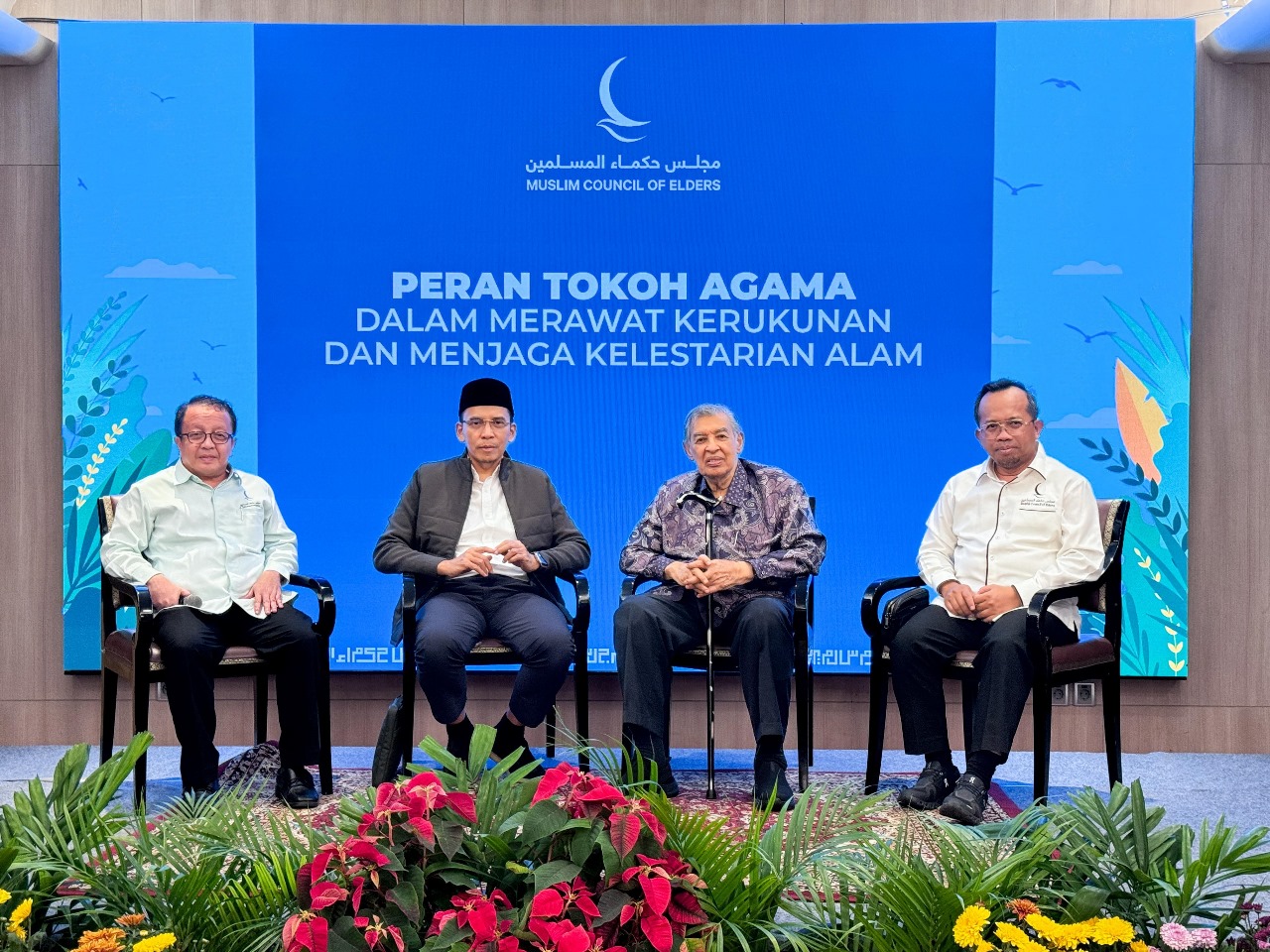Muslim Council of Elders' Branch in Indonesia Organizes Dialogue to Promote Tolerance and Support Climate Action During COP29
Indonesia's Minister for Religious Affairs: The Responsibilities of Religious Leaders Are Increasing Amid Global Crises, Especially in Promoting Tolerance and Protecting the Environment
Member of the Muslim Council of Elders: The Council, Under the Leadership of His Eminence Dr. Ahmed Al-Tayeb, Is Making Pioneering Efforts to Promote Tolerance, Coexistence, and Human Fraternity
Member of the Executive Office of the Muslim Council of Elders: Working for the Environment Requires Integrated Collaboration Among All Sectors of Society, Including Religious Leaders
The Muslim Council of Elders' branch in Indonesia organized a dialogue titled "The Role of Religious Leaders in Preserving Harmony and Protecting Nature" on the occasion of the International Day for Tolerance, observed annually on November 16. The event coincided with COP29 and gathered representatives from Indonesia's print and visual media.
The discussion, which focused on the importance of promoting values of tolerance and the role of religious leaders in addressing environmental challenges and supporting climate action to achieve global peace and stability, featured several prominent figures, including Dr. Nasaruddin Umar, Indonesia's Minister for Religious Affairs, Dr. Muhammad Quraish Shihab, former Minister for Religious Affairs and a member of the Muslim Council of Elders, and Dr. Muhammad Zainul Majdi, a member of the Executive Office of the Muslim Council of Elders.
In his speech via video, Dr. Nasaruddin Umar stated, "Religious leaders are facing significant challenges given the current state of humanity, especially with increasing global crises. These responsibilities include enhancing tolerance and understanding among nations and contributing to environmental protection and climate action." He further emphasized, "Religious leaders play a pivotal role in guiding communities toward collective action and uniting efforts to confront shared challenges by combining spiritual values with environmental awareness to promote peace and sustainable development."
Dr. Muhammad Quraish Shihab said, "Under the leadership of His Eminence Dr. Ahmed Al-Tayeb, the Grand Imam of Al-Azhar and Chairman of the Muslim Council of Elders, the Council is making pioneering efforts to promote tolerance, coexistence, and human fraternity. Tolerance is not merely accepting differences; it is an active commitment aimed at fostering societal harmony and building bridges of understanding among cultures, peoples, and communities." He added, "These values are a fundamental pillar in addressing the major challenges facing the world today, such as the climate change crisis, by encouraging international cooperation and mobilizing collective efforts to protect the environment and achieve sustainability."
For his part, Dr. Muhammad Zainul Majdi highlighted, "Working for the environment requires integrated collaboration among all sectors of society, including religious leaders who can contribute to raising environmental awareness and supporting efforts to mitigate the effects of climate change." He noted that "The Muslim Council of Elders is committed to spreading a culture of shared responsibility toward the environment and supporting global efforts for sustainable development."
This dialogue session follows a visit by His Eminence Dr. Ahmed Al-Tayeb, the Grand Imam of Al-Azhar and Chairman of the Muslim Council of Elders, to Indonesia in mid-July. During the visit, His Eminence discussed efforts with official and religious leaders to promote coexistence and tolerance in Indonesian society. His Eminence also praised Indonesia's pioneering experience in managing diversity and respecting pluralism, noting that the peaceful coexistence climate prevailing in Indonesia could serve as a global model.

